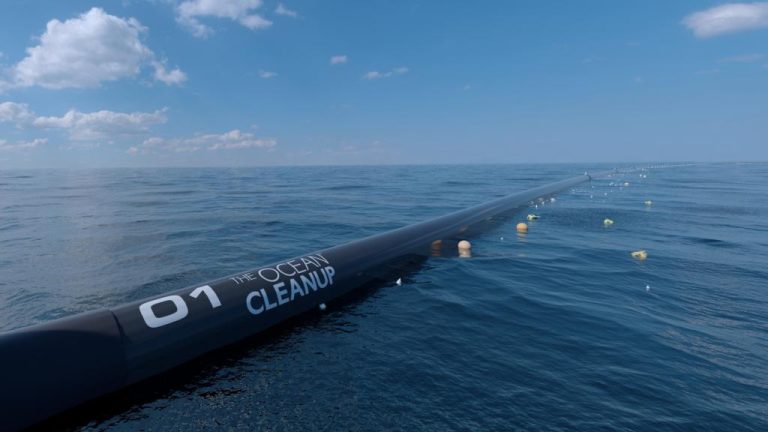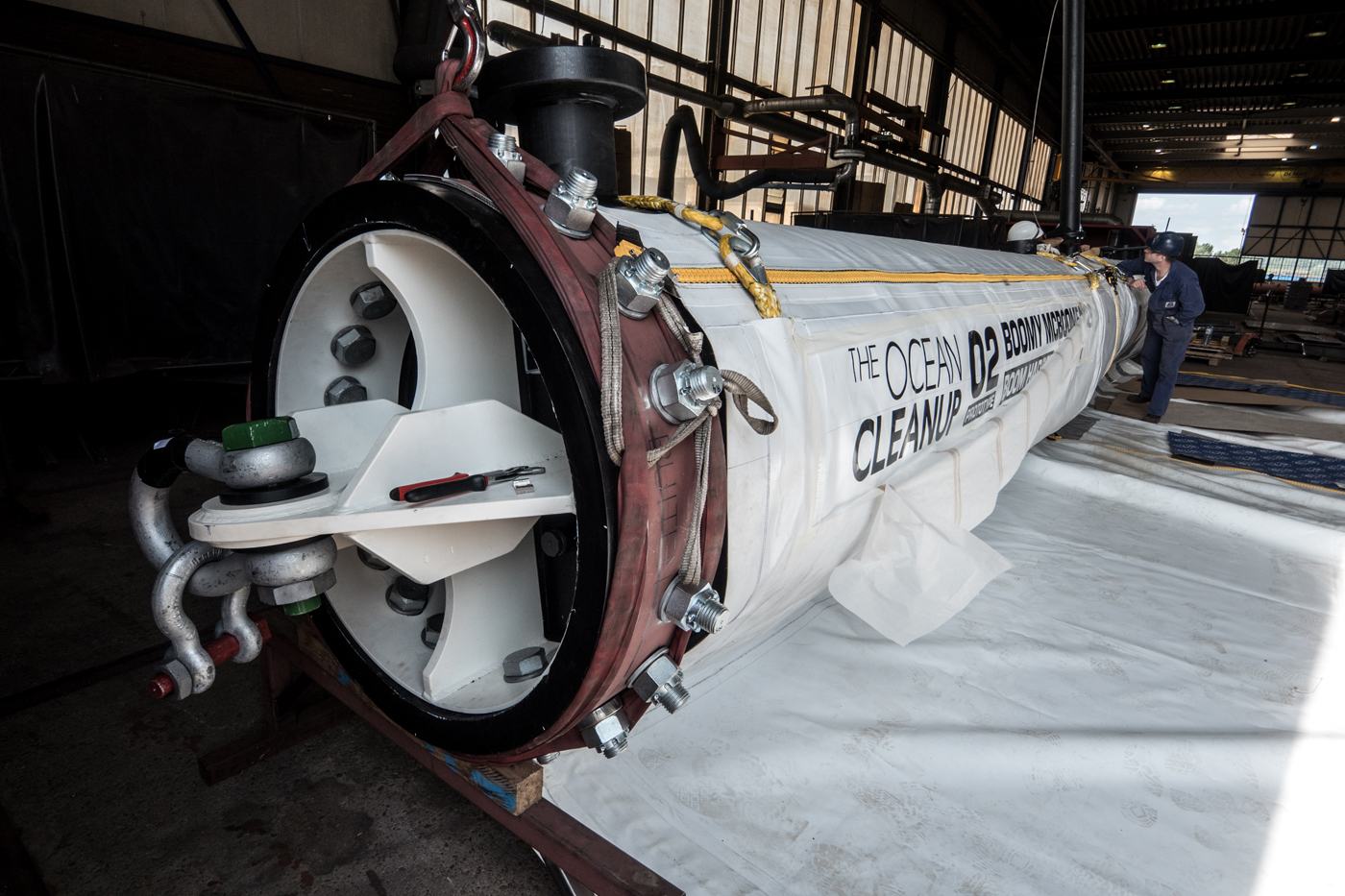The world’s first clean-up system for the ocean’s plastic soup, System 001, was launched last Saturday. How does TU Delft hydraulic engineer, Wim Uijttewaal, regard the attempt?
One of the floaters. (Photo: Ocean Cleanup)
The Ocean Cleanup system is the culmination of former TU Delft student Boyan Slat’s efforts over the last five years. He has been promoting, crowd funding and developing solutions to deal with the plastic soup in oceans ever since 2013. As a result, a huge structure of floating pipes was towed out of the Bay of San Francisco towards the infamous Great Pacific Garbage Patch last weekend. Major questions are as yet unanswered: will the system catch and retain plastic from the ocean’s surface? And will it remain intact in this hostile environment?
Professor Wim Uijttewaal (environmental fluid mechanics at the CiTG Faculty) admires the courage of the project. Uijttewaal is well aware of the uncertainties of the project. “Parts of the system have come through laboratory tests well, but there is only one way to test the full-scale system and that is to boldly go ahead and build and deploy it.”
Uijttewaal also admires the societal support that Boyan Slat has generated, and the awareness of the plastic soup as an urgent environmental problem that he has raised. Uijttewaal expects this unique large-scale experiment to produce lots of useful data on the feasibility of an ocean clean up. But if the system fails, it will harm Slat’s reputation as well, he fears.
Preventing plastic from getting into the ocean in the first place would be even better than retrieving it. To this end, Uijttewaal is writing a research proposal called ‘Plastic-Free Rivers’. The project aims to develop techniques for trapping floating plastic from rivers before it flows into the seas and oceans. “There are a lot of different ideas and initiatives on how to catch plastics. We aim to bundle the knowledge and select the most promising technologies for further development.”
Obviously both the Ocean Cleanup and prevention programmes for plastic pollution will be needed to reduce the growing amount of plastics in the seas.


A computer generated image of the floaters concentrating floating plastic (Source: Ocean Cleanup)
Boyan Slat on his mission to clean up the oceans.
Do you have a question or comment about this article?
j.w.wassink@tudelft.nl


Comments are closed.